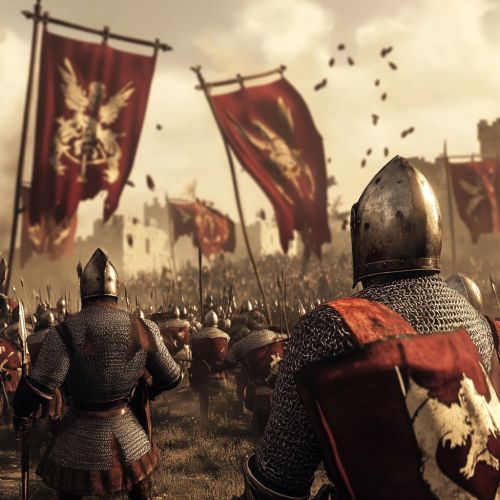Battle of Barnet
Background
The Battle of Barnet was a pivotal engagement in the Wars of the Roses, a series of civil wars fought in England during the 15th century between the rival houses of Lancaster and York. The battle occurred on April 14, 1471, near the town of Barnet, just north of London. It was a decisive victory for the Yorkist forces led by Edward IV, which significantly weakened the Lancastrian cause and consolidated Edward's hold on the English throne.
The Wars of the Roses were characterized by a complex web of dynastic claims, shifting alliances, and political intrigue. The conflict between the houses of Lancaster and York was rooted in disputes over the rightful succession to the English crown, exacerbated by the weak rule of Henry VI, whose bouts of mental illness left the kingdom in a state of instability.
Prelude to the Battle
In the years leading up to the Battle of Barnet, the political landscape of England was tumultuous. Edward IV had initially seized the throne in 1461, but his reign was interrupted in 1470 when a coalition of Lancastrian forces, led by Richard Neville, the Earl of Warwick, and Edward's own brother, George, Duke of Clarence, forced him into exile. This coalition restored Henry VI to the throne, albeit briefly.
Warwick, once a staunch supporter of Edward IV, had become disillusioned with the king's policies and his marriage to Elizabeth Woodville, which undermined Warwick's influence at court. This led to Warwick's defection to the Lancastrian side, where he sought to restore Henry VI and secure his own power.
Edward IV returned to England in March 1471 with a small force, quickly gathering support from Yorkist loyalists. He entered London unopposed, reclaiming the throne and capturing Henry VI. With his position in London secure, Edward turned his attention to Warwick, who had assembled an army at Barnet.
The Battle
The Battle of Barnet took place on a foggy morning, which played a significant role in the outcome. Edward IV's forces numbered around 10,000 men, while Warwick commanded a slightly larger army. The fog obscured the battlefield, leading to confusion among the troops.
Edward's strategy involved a direct assault on Warwick's center, while his brother, Richard, Duke of Gloucester, later Richard III, commanded the right flank. The fog caused Warwick's left wing, led by the Earl of Oxford, to mistakenly attack their own side, believing them to be the enemy. This friendly fire incident led to chaos within the Lancastrian ranks.


The Yorkist forces exploited this confusion, pressing their advantage and breaking through the Lancastrian lines. Warwick's army was routed, and he himself was killed in the chaos. The death of Warwick, known as the "Kingmaker" for his role in the rise and fall of kings, marked a turning point in the Wars of the Roses.
Aftermath
The victory at Barnet solidified Edward IV's control over England. The Lancastrian forces were further weakened by the subsequent Battle of Tewkesbury, where Edward's army decisively defeated the remaining Lancastrian supporters, leading to the death of Edward of Westminster, the Lancastrian heir.
With the Lancastrian threat effectively neutralized, Edward IV reigned unchallenged until his death in 1483. The battle also marked the decline of the Neville family's influence, as Warwick's death left a power vacuum that Edward filled with loyal supporters.
The Battle of Barnet is often studied for its tactical elements, particularly the impact of environmental conditions such as fog on medieval warfare. It also highlights the importance of leadership and the consequences of divided loyalties within an army.
Legacy
The Battle of Barnet is remembered as a crucial moment in the Wars of the Roses, demonstrating the volatility of allegiances and the rapid shifts in power that characterized the period. It underscored the fragility of medieval kingship and the role of military force in determining political outcomes.
The site of the battle, now largely urbanized, is commemorated by a monument and is of interest to historians and archaeologists studying the period. The battle's impact on the course of English history is significant, as it paved the way for the eventual rise of the Tudor dynasty, which would bring an end to the Wars of the Roses with the accession of Henry VII.
